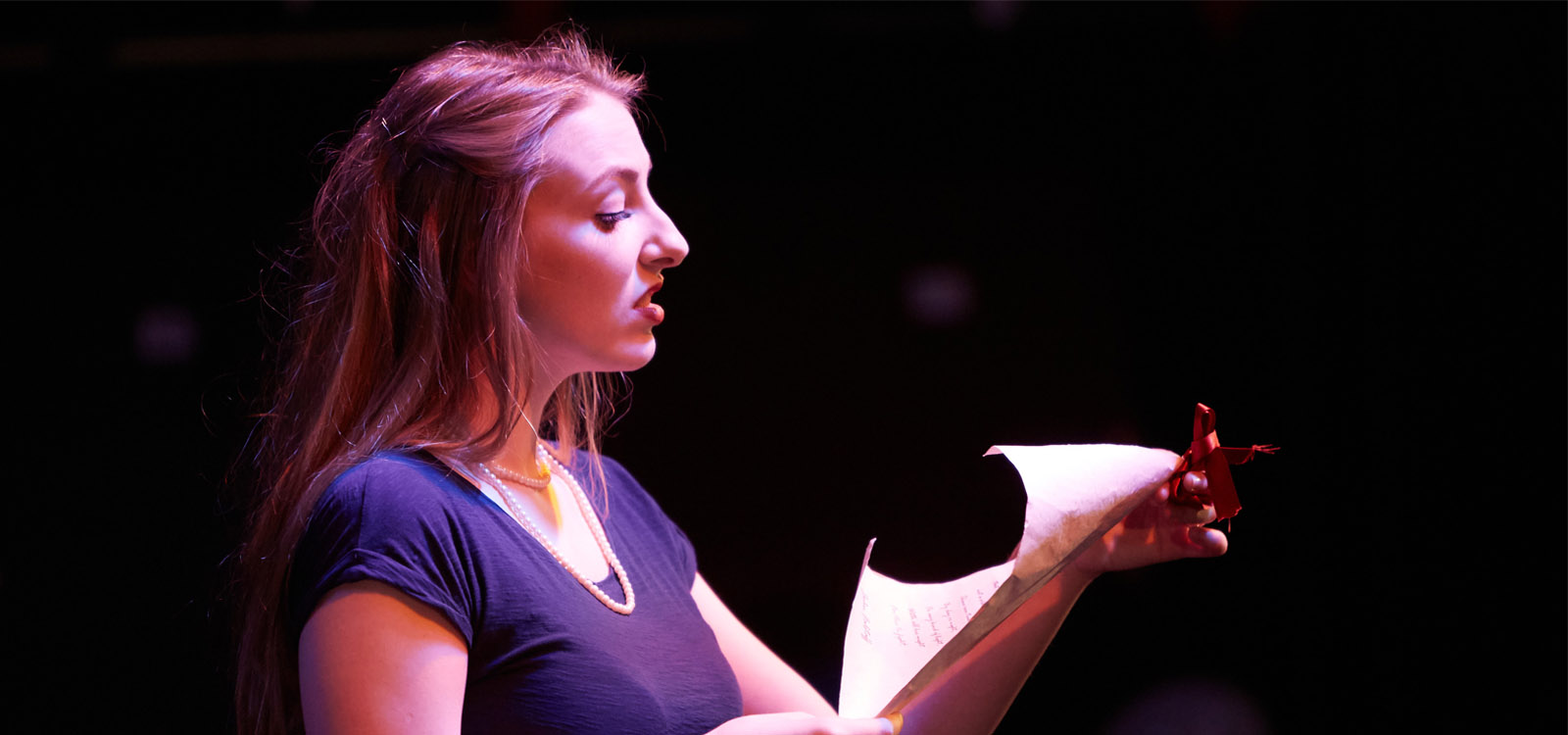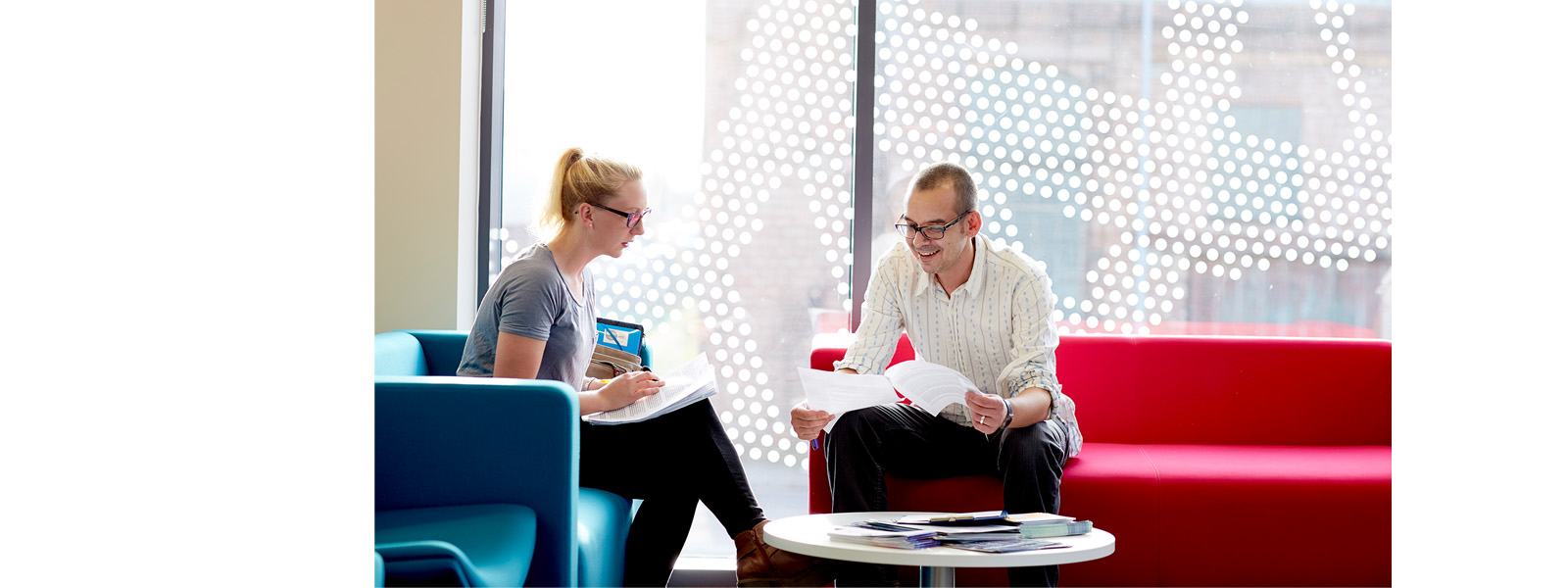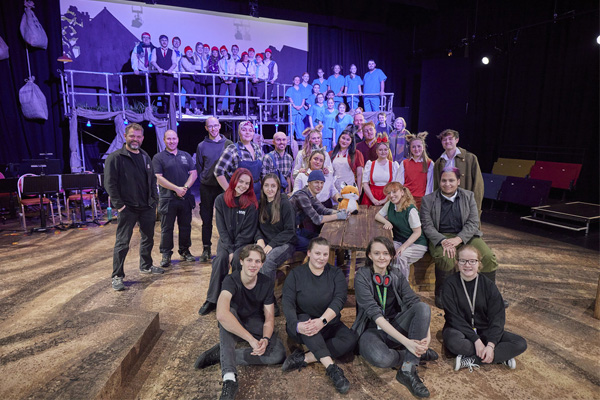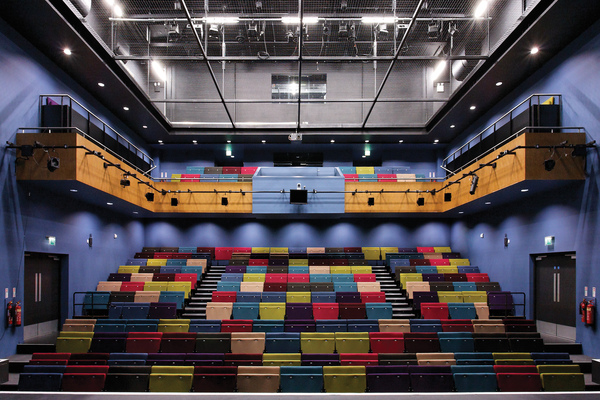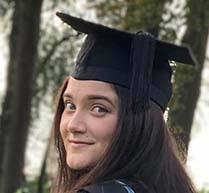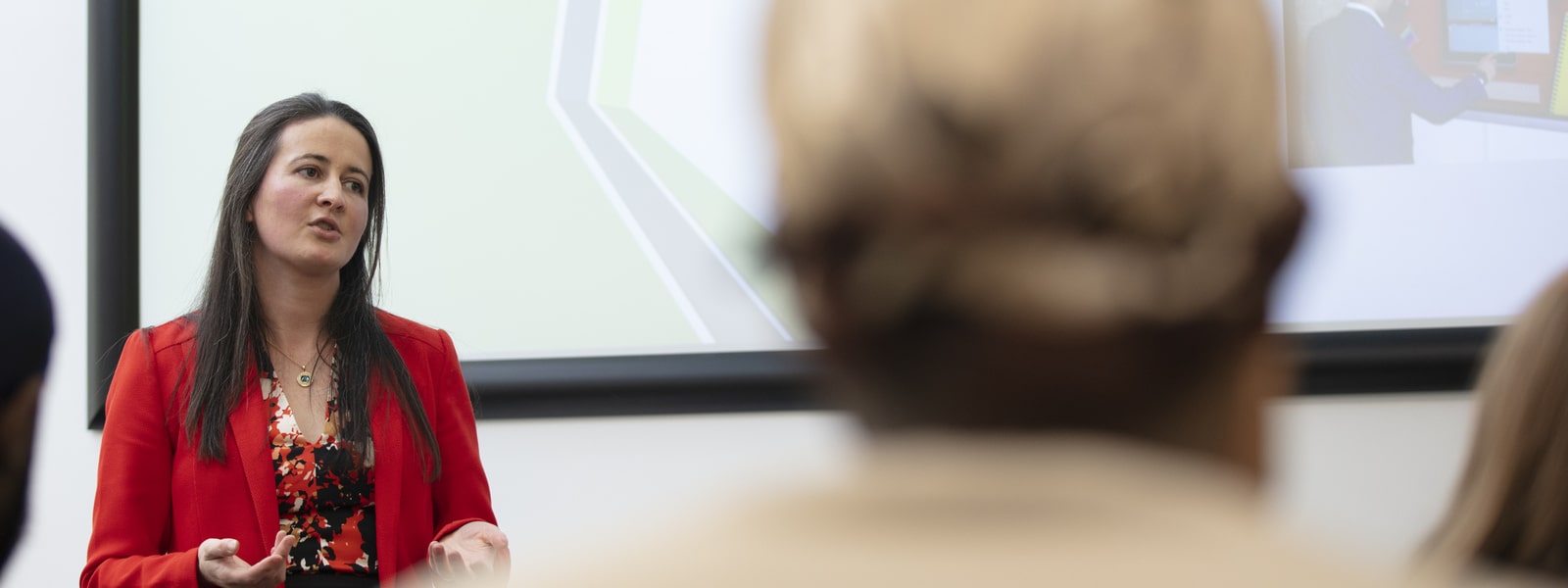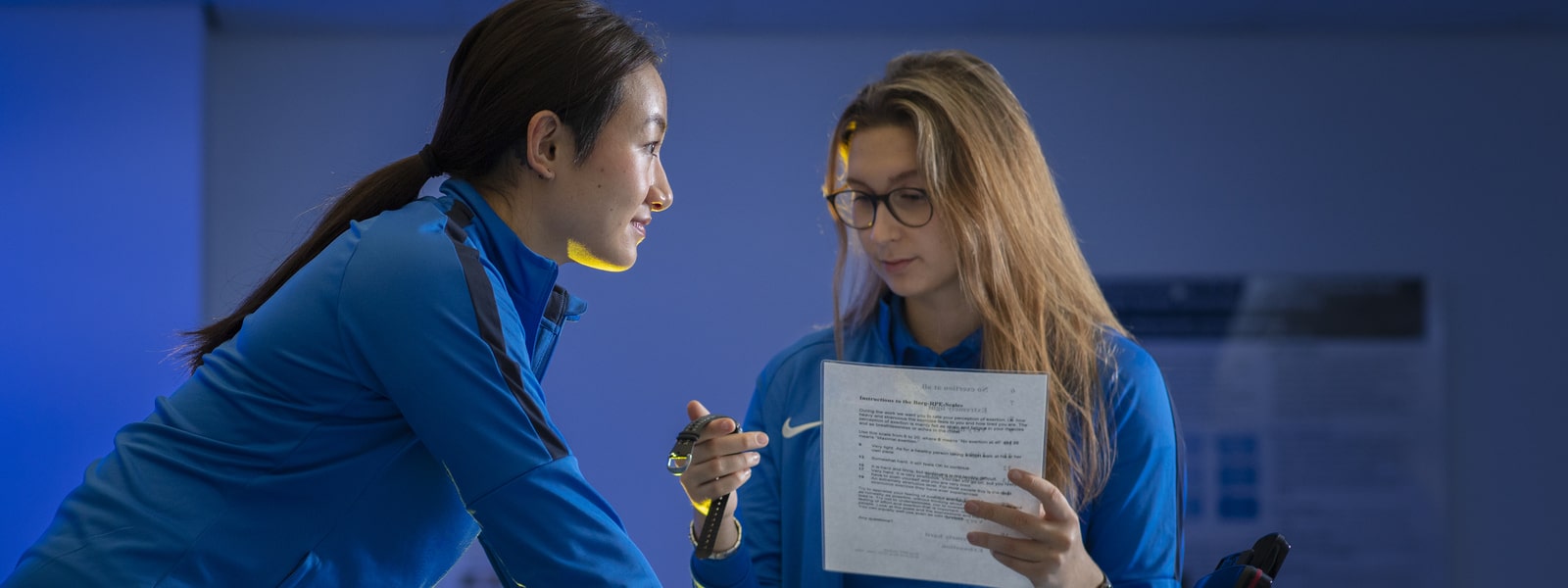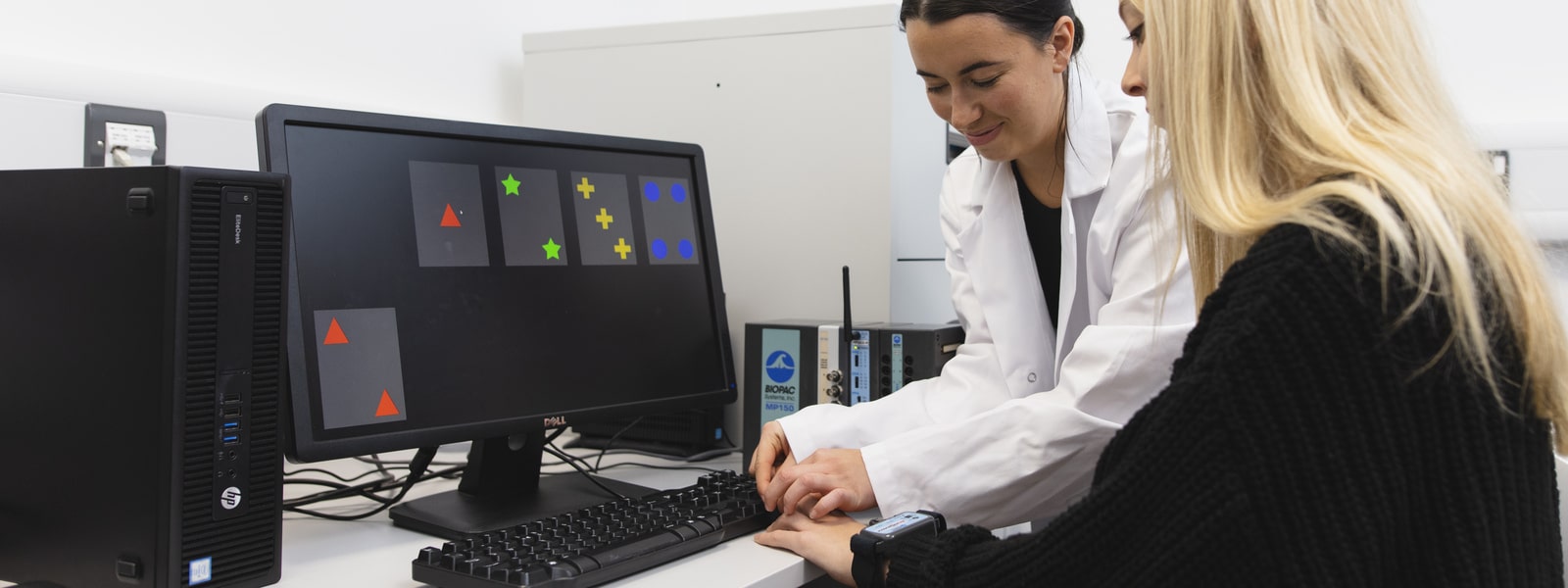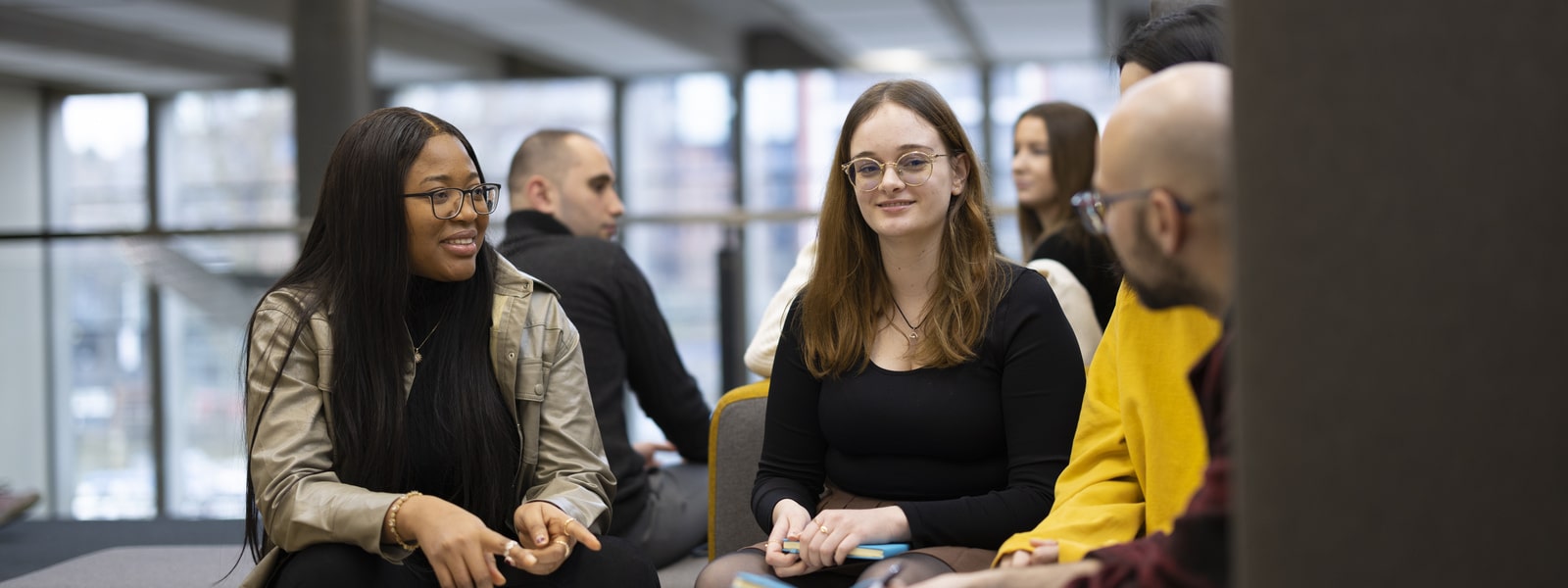Module Overview
Fragmentation, uncertainty and conflict characterise a world in aftermath of war, at end of empire, and at the beginning of a period of radical social and cultural change. This module aims to chart the emergence of the contemporary world from these fractured beginnings through an introduction to British literature of the period 1950–2000. From the post-war Windrush migration to the rise of the historical novel at the turn of the millennium, the Angry Young Men to new feminist perspectives and postcolonialism, this module explores relevant theoretical perspectives on the late 20th Century and encourages an appreciation of the relationship between texts and their social, political and cultural contexts.
Module Overview
This module considers the range of theories that we can use when we read and think about literature. Students will have the opportunity to study psychoanalysis, feminism, Marxism and postmodernism, among others, to think about why and how we structure meaning and interpretation in certain ways. We consider questions such as ‘what is an author?’, ‘what is gender?’ and ‘why do certain things frighten us?’ through theorists such as Roland Barthes, Judith Butler and Sigmund Freud.
Module Overview
This is a screen acting and directing practically-based module that unites Drama and Film Production students in a shared workshop environment. Drama students can explore the fundamental approaches and practicalities involved in acting for camera, working with students from Film Production toward the creation of a filmed scene. For all students, the module allows for advanced practice-based understanding of script analysis, film acting, and directing in a studio environment, while developing planning, pre-production, and on-set methodologies for final filmed sequences. In this module Drama students can learn the skills, approaches, and techniques necessary in acting for camera, take and apply the direction they receive, and have their work appear in a final edited scene.
Module Overview
This is a practical module which explores the techniques of singing and acting a song. You will work on vocal technique, character development, and acting approaches to prepare solo numbers for performance. The module will equip you with the skills to begin to put together a rep portfolio appropriate for your voice. This will be invaluable if you are planning to apply for postgraduate study at drama school or begin auditioning for shows. Assessment will be part practical, and part based on a portfolio detailing your exploration of acting and vocal techniques through the module.
Module Overview
This module explores the nineteenth-century literature of the USA, chiefly focusing on fiction and poetry. Authors covered include Herman Melville, Emily Dickinson, Charlotte Perkins Gilman, Walt Whitman and Willa Cather, among others.
Module Overview
This module covers a broad range of twentieth-century American fiction and poetry. Beginning with Fitzgerald, other authors studied include Ernest Hemingway, Jack Kerouac, Toni Morrison, Thomas Pynchon and David Foster Wallace.
Module Overview
Arts and Health, an optional 30 credit module in Semester B, is a live brief project that offers students the opportunity to work in a professional public setting to facilitate artwork with participants. This may be a community, charity, educational, public or private sector setting in Lincoln or elsewhere. You will be given the opportunity in this module to facilitate artwork with service users, communities or clients in organisations such as We Are With You / Double Impact / NHS / YMCA / HMS or another charity or community setting.
We have successfully worked with We Are With You / Double Impact Lincoln for the past 7 years, a national drug and alcohol charity offering support to people to enable them to make positive behavioural change. Their work encompasses community support, education, help for those in the criminal justice system, mental health services, family and employment support. In recent years we have also started to grow our community settings to provide students with further professional facilitation experiences such as working with adults with lived experience within the NHS and local communities at Doddington Hall, that draw upon community arts, participatory arts, arts psychotherapeutic methods and occupational health approaches.
Students considering a career in arts-led intervention or community arts practices, will gain invaluable experience of planning, training for, delivering and evaluating a participatory art process within a community setting.
Module Overview
This module examines key British medieval texts, primarily in Middle English, from the High and Late Middle Ages (that is, from approximately the twelfth century to fifteenth century). It explores the breadth of literary activity in the period through a variety of genres--such as debate poetry, ethnographies, beast fables, romance, dream visions, satire, devotional and mystical writings, and mystery plays--and the evolution of a new form of English (the precursor of modern English), revealing that the medieval period is, in truth, a far cry from the misnomer by which it is often identified, the ‘dark ages’.
Module Overview
This module examines one of the most varied literary genres extant, one that, at times, is often relegated to the margins because of its slippery nature. Students will examine early examples of fantasy and trace the genre’s development across a number of key historical epochs, from the classical and medieval periods to the twenty-first century. They will consider especially Tolkien as a pivotal force in the growth of fantasy literature and theory, as well as The Inklings, a group whose works had a profound influence on the evolution of the genre in the twentieth century. A range of subgenres of the fantastic will be explored, which may include high and low fantasy, ironic fantasy, historical fantasy, or magic realism, and, alongside primary texts, they will read selections from modern theoretical and critical texts that articulate different interpretations and approaches to the fantastic.
Module Overview
This module will cover the latest technologies used in theatre and live events, from contemporary lighting and innovative live sound technology to holographic performance and virtual reality.
The module will explore how this technology is used and will encourage students to consider how contemporary technology can be used or developed to create a performance. The module will research and analyse case studies from innovative contemporary productions and manufacturers from around the world.
Module Overview
In this module students have the opportunity to study a range of contemporary dramatic texts and performances grouped thematically into three key areas of contemporary cultural context: Neoliberalism; Borders and Nations; and Climate Change and the Environment. Applying the skills of close critical analysis developed throughout the course, students are expected to consider how contemporary theatre is engaging with the social, political and environmental fallout of 'the end of history' and examine the various dramaturgical strategies employed by contemporary theatre-makers to address these challenges. The module runs as a series of practical sessions in which the plays are workshopped as well as discussion-based seminars.
Module Overview
This module aims to enable students to understand the landscape for potential employment post-University. The module runs alongside the Placement module and will have the scope to feature guest talks from industry professionals.
Module Overview
Creative Audio Technologies encourages students to embrace and create using technology to facilitate an audio-based project, by exploring some of the creative tool available at the cutting edge of digital work. Students will be introduced to a spectrum of technological tools designed to enhance and record audio, before creating their own project incorporating these techniques. Existing original audio-based work – along with alternative uses of technologies – will be critically analysed in ways that embraces multiple genres, art forms and approaches to technology.
Module Overview
This module focuses on the interdisciplinary field of digital performance. “We define the term 'digital performance' broadly to include all performance works where computer technologies play a key role rather than a subsidiary one in content, techniques, aesthetics or delivery forms” (Dixon, 2007, p3).
It examines the intersection of digital media and performance in various contexts, such as interactive media on stage, biosensors and the body in performance, and social media and performance opportunities. By working with various digital technologies students can engage and explore practically how to make performance using these tools and new technologies.
Module Overview
This module is part of the University's commitment to academic programmes that encourage a high level of vocational relevance. This module encourages students to think beyond their University life, reaching into the wider community to hone their skills and target future employment possibilities. The module aims to enable students to examine how arts-based organisations, educational and non-traditional arts-based establishments function and provide students with valuable workplace experience.
Module Overview
The Industry Placement Year is an exciting opportunity for students to take a year out of formal study to gain real-world experience in the creative industries. Whether you’re looking to build industry connections, develop professional skills, or explore career options, this year will give you a full-time, hands-on experience within an arts, cultural, or creative organisation.
This year is a collaborative experience between you, your employer, and the University—ensuring that you get the most out of your time in a professional setting.
Module Overview
This module examines some of the preoccupations of the fin de siècle through a series of texts and authors who helped to shape the cultural climate of the 1880s-1900s. These decades gave rise to a pervasive feeling of vital urgency and exhilaration in Britain, as well as a conflicted sense that society was teetering on a cliff edge of irredeemable degeneration. Texts will be read alongside and in light of social and political developments, such as anxieties about Britain’s empire and position on the global stage, evolution and degeneration, sexual identity, women’s rights, the rise of occultism and spiritualism, Decadence, and radical politics. The study of fin de siècle writing will be set against the backdrop of the infamous Oscar Wilde trial, and the sensationalised Jack the Ripper murders, contemporary anxieties about criminality, the empire, and eugenics.
Module Overview
Study Abroad is an optional module which enables students to spend a semester studying abroad at one of the University’s approved partner institutions. Eligible students must have completed their first year of study to a satisfactory standard and successfully completed the application process for the study abroad scheme. During the semester spent abroad, students share classes with local students and study on a suite of locally-delivered taught modules which have been approved in advance by the University. Upon their return, as part of the assessment for this module, students are required to critically reflect upon their experience of living and studying in a different cultural environment and the skills acquired.
Module Overview
This module considers the current moment in musical theatre, and anticipates new innovations. It will focus particularly on musical theatre in the British and digital contexts, identifying new dynamics, new emergences, and new opportunities for and within the musical theatre industry.
Module Overview
Students studying Renaissance Literature have the opportunity to look in detail at a range of texts from the late Elizabethan period to the mid-1630s, including work by Shakespeare, John Donne, Ben Jonson and Mary Wroth. They also have the chance to explore the historical and cultural contexts in which these texts were produced, and the effects that they had on the politics and culture of the British Isles in the period. Lectures aim to examine post-Reformation England and late humanism, patronage, gender relations, early modern literary theory, education and philosophy.
Module Overview
Students will study English literature of the Romantic period (1780-1830), including poetry, fiction, autobiography, and political polemic. The module will address revolutions in politics and literary form and ideas of nature, the sublime, sensibility and feeling, abolition and slavery, Enlightenment feminism, the Gothic, Orientalism, and childhood. Students will have the opportunity to study works by writers including William Wordsworth, William Blake, Mary Shelley, Jane Austen, and Olaudah Equiano, placing them in their cultural context.
Module Overview
This module aims to give you an opportunity to immerse yourself in a specialist area within the creative arts. The content of the module is shaped by the research and practice expertise of staff members who actively collaborate with and mentor you throughout your exploration of this specialist area. This ensures that you benefit from the latest insights and methodologies within the chosen specialist area, gaining a well-rounded understanding that integrates theoretical knowledge with practical application.
Module Overview
This practical module teaches the fundamental techniques of armed and unarmed theatrical combat. Students undergo stage fight training designed to enable them to act out physical conflict in a safe and technically proficient way, while maintaining characterisation and creating a convincing illusion of reality. Throughout the semester, students work in pairs under the combat coach’s supervision. At the end of the module, they engage in an assessment by performing a fight scene that they have selected and rehearsed. The exam gives students the option of obtaining a stage combat certificate issued by The Academy of Performance Combat.
Module Overview
This practically-based module engages with selected plays of the Early Modern period and uses them as texts for performance on the contemporary stage. Working both as dramaturgs and performers, students can form a production ensemble and stage an Early Modern classic presented on the main auditorium of the Lincoln Arts Centre.
Students may connect their interpretation and re-interpretation the text and its performance history with their own ideas and experiences to situate the Early Modern text within our contemporary cultural moment. Recently staged performances on this module include versions of John Webster’s The Duchess of Malfi, Christopher Marlowe's Dr Faustus; and Shakespeare's Hamlet, A Midsummer Night's Dream, and Romeo and Juliet.
Module Overview
This module provides an opportunity for students on the joint English and Drama BA to spend a semester at second level studying at one of the University’s partner institutions, developing academically and personally. During the semester abroad students undertake a course load at the partner institution of equivalent standard to that of one semester of the programme at Lincoln. Participation in study abroad also offers unique opportunities for personal student development in the widest sense, taking in cultural, sporting and social opportunities.
In order to participate, students are usually expected to obtain a 2:1 or higher at Level 1, have a good record of attendance and participation, and must complete an application process. A limited number of places will be available each year, and participation is at the discretion of the Module Co-ordinator and the Programme Leader.
Module Overview
Throughout this module, students can develop and deepen their knowledge and practice of teaching and delivery in their chosen discipline. Students are able to practice, analyse, and discuss various possible strategies for working in a variety of environments, including more challenging environments, such as integrated settings and with hard-to-reach groups. In addition to the practical exploration of teaching and delivery, students can investigate the key policies and legislation surrounding the teaching profession. This module has a strong industry-facing element, and can provide key knowledge and tools for students wanting to move toward teaching and delivery as part of their career.
Module Overview
This module examines Arthurian narratives, myths, and traditions within a variety of contexts and media, and traces a variety of themes associated with Arthur and his court, including history and national identity; violence; kingship and rule; loyalty and betrayal; and love, sex, and gender roles.
Students will be expected to assess the importance of a myth that spans more than a millennium and address how medieval texts made meaning within their specific socio-cultural situations, as well as how later periods make meaning through their deployment of the medieval in new contexts.
Module Overview
While students are introduced to prose fiction writing and essential narrative techniques at level 1, the field of prose writing is much wider than short stories or novels. In areas such as travel, historiography, literary journalism and biography, writers frequently employ similar techniques to those used by novelists to make events and characters more vivid.
This module will encourage students to use their creative and technical skills to write non-fiction, including but not limited travel writing, life writing, articles, reviews and journals. Particular attention will be paid to balancing the need to convey factual information with the creative potential of narrative, language and form.
This module will allow students to research a field they wish to investigate such as current events, the arts, history or some aspect of science. Students will learn both how to conduct research (through archival research, observations, and interviews) as well as the fundamental techniques of telling a true story. Extended over two semesters, it will enable students to engage more deeply with a chosen field of non-fiction, for example to produce chapters that would contribute to a book as well as features.
Module Overview
This module will explore the role of fiction writing with an initial emphasis on the short story. Many writers begin with the short story. Through writing short stories they are able to experiment, learn the fundamentals of narrative composition, and have the satisfaction of completing something to a high standard in a relatively short period of time.
This module will introduce students to the work of a range of fiction writers, whilst helping them to develop their skills in crafting prose. They will be asked to study particular stories each week, but also expected to pursue their own interests in reading. The skills required for writing short stories are also key to working in other forms, so this module will help students to develop as writers, whatever their plans and ambitions may be.
Module Overview
This module introduces you to adapting texts from one medium (e.g. novel, film, poem, image) to the medium of the theatre. Through seminar discussions and readings (play texts and scholarship), you will explore the aesthetic, political, and cultural implications involved in the adaptation process. Adopting a practical approach as a lens to engage with these ideas, you will also work in groups to develop an adaptation project for a short theatrical performance.
Module Overview
This module explores the practices, politics, cultural legacy and impact of the European Avant-garde circa 1880-1930 and turns to more recent developments in the course of the module. Students may study the theories, manifestoes, interventions and artworks from key movements including: Symbolism, Futurism, German Expressionism, DaDa, Surrealism, and Absurdism, before considering contemporary expressions of avant-garde practice such as the 1960s Happenings, and the Fluxus Group. The module asks: What can the theatre – and other practices of these avant-garde movements and landmark practitioners – teach us in our approach to making theatre today? Where can vestiges of avant-gardism be seen in diverse contemporary performances and artworks? And how do avant-garde artists attempt to create radical fusions of art, life and politics? The answers to these questions form the foundation for the small group performances you will make that have been an influential springboard for the L3 Degree Show projects.

